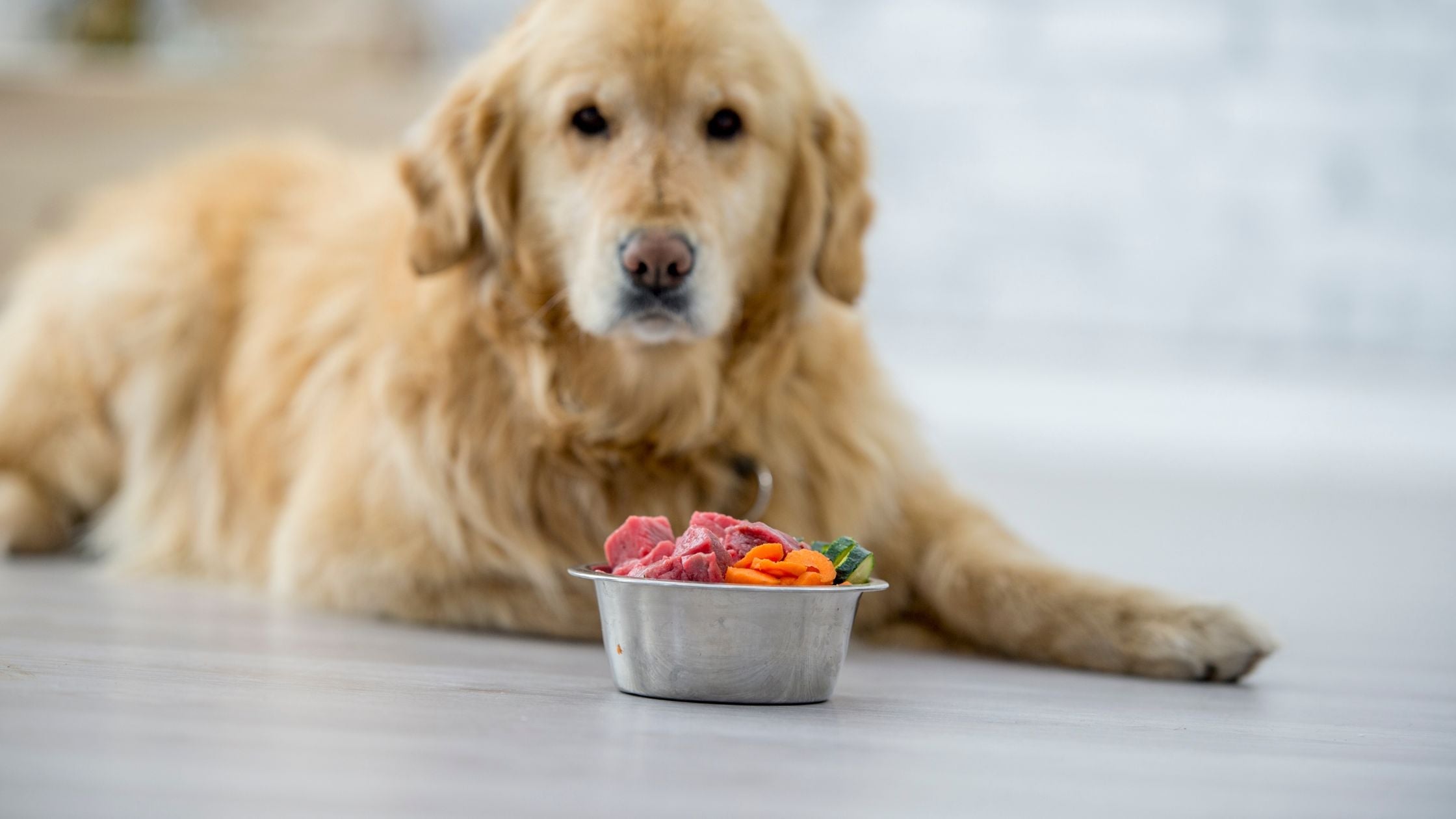A Dog's Dietary Needs and How to Choose the Right Food
Feeding your dog a balanced, nutritious diet fuels your adventures together. Dogs require proteins, carbs, fats, vitamins, and minerals. Their dietary needs depend on factors like age, breed, size, and health. Choose food with high-quality ingredients, that's labeled 'complete and balanced'. Tailor food to your dog's needs for the best results. Remember to monitor your dog's response to new food.
Dogs are our loyal companions and feeding them a balanced and nutritious diet is the best way to fuel all of your adventures for years to come. In this guide, we'll explore the essential aspects of a dog's dietary needs and tips on selecting the best food for your beloved pup.
Understanding a Dog's Dietary Needs
As omnivores, dogs require a balanced diet that consists of proteins, carbohydrates, fats, vitamins, and minerals to thrive. Proteins are crucial for muscle support, while carbohydrates provide energy. Fats are essential for supporting healthy skin and coat, and vitamins and minerals can help maintain various bodily functions, such as immune system support and bone health.
Factors Influencing Dietary Needs
Several factors influence a dog's dietary needs, including age, breed, size, activity level, and any underlying health conditions.
Puppies, for instance, require diets rich in protein and calories to support their rapid growth and development. Senior dogs, on the other hand, may benefit from lower-calorie diets with added joint support to help maintain mobility.
Additionally, certain breeds may have specific dietary requirements or sensitivities. Large breeds, such as Great Danes or Mastiffs, may require diets formulated to support healthy bone growth and joint health, while small breeds like Chihuahuas may benefit from smaller kibble sizes to aid digestion.
Choosing the Right Dog Food
With countless options available in the pet food market, selecting the best food for your dog can feel overwhelming. Here are some veterinarian-approved tips to help you get started.
Quality Ingredients
Look for dog foods that use high-quality ingredients and real proteins such as chicken, beef, and lamb as a leading ingredient. Additionally, avoid products containing fillers, artificial preservatives, and by-products like corn, soy, or wheat, as these may offer little nutritional value and potentially harm your dog's long-term health.
Complete and Balanced Nutrition
Ensure that the dog food you choose is labeled as "complete and balanced" by the Association of American Feed Control Officials (AAFCO). This ensures that the food meets the minimum nutritional requirements for dogs at their specific life stage.
Consider Your Dog's Unique Needs
Take into account your dog's age, breed, size, and activity level when selecting food. Some brands offer formulas tailored to meet the specific needs of puppies, adults, seniors, or active breeds.
Add Pet Supplements to Your Dog’s Diet
Although most dog foods are formulated to provide the nutrients your dog needs to stay healthy and happy, using a pet supplement is a great way to fill the gaps in your companion’s diet that normal dog food may not satisfy.
Consult with Your Veterinarian
Your veterinarian is an invaluable resource when it comes to understanding your dog’s dietary needs. They can provide personalized recommendations based on your dog's health history and nutritional requirements.
Monitor Your Dog's Response to Any New Food
Once you've chosen a dog food, pay attention to how your dog responds to it. Look for signs of improved energy levels, healthy coat and skin, and regular bowel movements. If you notice any adverse or allergic reactions or changes in your dog's health, consult your veterinarian promptly.
Types of Dog Food to Choose From
Dry Dog Food (Kibble)
Dry dog food is convenient, affordable, and has a long shelf life. It also helps promote dental health by reducing plaque and tartar buildup. However, some dogs may find it less palatable, and it may not be suitable for dogs with dental issues or those prone to dehydration.
Wet Dog Food
Wet dog food is highly palatable and can be beneficial for dogs with dental problems or those who are picky eaters. It typically has a higher moisture content, which can help keep dogs hydrated. However, it tends to be more expensive and has a shorter shelf life once opened.
Homemade Dog Food
Homemade pet food can be a fantastic option since it allows pet parents to have full control over the ingredients, ensuring that only high-quality, wholesome foods are used. This can be especially beneficial for dogs with food allergies or sensitivities, as homemade meals can be tailored to meet their specific dietary needs.
Homemade dog food also eliminates the need for preservatives and additives commonly found in commercial pet foods, promoting a more natural and nutritious diet. Plus, preparing homemade meals can foster a stronger bond between you and your furry friend, as it involves hands-on involvement and personalized care.
If preparing homemade pet food is too tall an order, you can always try making homemade pet treats instead. It provides all the benefits of homemade pet food without the time requirements and at a fraction of the cost. Here are just a couple of homemade dog treat recipes you can try today:
Peanut Butter Banana Dog Biscuits
Ingredients
- 1 ripe banana, mashed
- 1/4 cup natural peanut butter (make sure it does not contain xylitol, as it is toxic to dogs)
- 1 tablespoon coconut oil, melted
- 1 cup whole wheat flour (or oat flour for dogs with wheat allergies)
- 1/4 cup rolled oats
- Optional: a handful of chopped parsley (for fresh breath)
Instructions
- Preheat your oven to 350°F (175°C) and line a baking sheet with parchment paper.
- In a mixing bowl, combine the mashed banana, peanut butter, and melted coconut oil until well blended.
- Stir in the whole wheat flour and rolled oats until a dough forms. If the dough is too sticky, add a little more flour.
- Roll out the dough on a floured surface to about 1/4 inch thickness. Use cookie cutters to cut out shapes, or simply use a knife to cut into squares.
- Place the treats on the prepared baking sheet and bake for 15-20 minutes or until golden brown and crispy.
- Allow the treats to cool completely before serving. Store leftovers in an airtight container in the refrigerator for up to one week.
Sweet Potato Chews
Ingredients
- 2 large sweet potatoes, washed and peeled
- 1 tablespoon coconut oil, melted
- Optional: sprinkle of cinnamon (aids digestion and adds flavor)
Instructions
- Preheat your oven to 250°F (120°C) and line a baking sheet with parchment paper.
- Cut the sweet potatoes into thin slices, about 1/4 inch thick.
- In a bowl, toss the sweet potato slices with melted coconut oil until evenly coated. Sprinkle with a pinch of cinnamon if desired.
- Arrange the sweet potato slices in a single layer on the prepared baking sheet.
- Bake for 2-3 hours, flipping the slices halfway through, until they are dried and crispy. The cooking time may vary depending on the thickness of the slices.
- Allow the sweet potato chews to cool completely before serving. Store leftovers in an airtight container in the refrigerator for up to two weeks.
Natural Supplements Designed Just For Your Canine Companion
From organic probiotics with prebiotics to calming aid, our natural supplements are designed to support your treasured companion’s health in every stage of life. Browse our full collection of pet supplements for dogs and cats and don’t forget to subscribe to our newsletter to receive exclusive deals, new product announcements, and more.
Sources:



